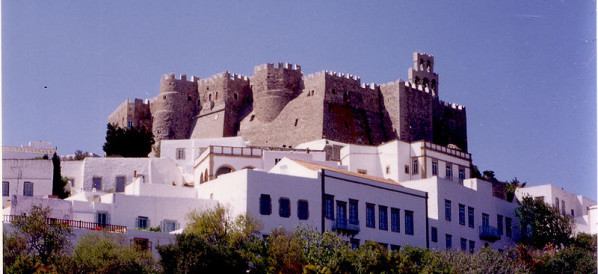 19 Terms
19 TermsHome > Terms > English (EN) > Ku Klux Klan
Ku Klux Klan
The Ku Klux Klan is America’s oldest terrorist hate group. It was founded in December 1865 in Pulaski, Tennessee by several well-educated exConfederate soldiers. The group took its name from the Greek word kukios meaning circle. The organization started as an adult fraternity devoted to performing weird rituals and practical jokes. It quickly evolved into a secretive regional terrorist and political organization countering new civilrights laws and the federal military occupation of the post-Civil War South.
Led by ex-Confederate general and slaveholder, Nathan Bedford Forrest, the group gained over half-a-million members throughout the South. Hooded nightriders terrorized and killed African American activists and their sympathizers in addition to transplanted Northerners, while groups, such as the Louisiana-based Knights of the White Camilla, undertook similar activities. With increased public outcry and the threat of congressional hearings and legislation looming, Forrest disbanded the group in 1869. Not all factions followed his order. The Klan withered during the 1870s after a series of high-profile prosecutions and changes in the political landscape. When northern troops withdrew, the need for terrorism against blacks became less pressing as Jim Crow laws restricting the social, economic and political activities of Southern blacks were passed.
The second incarnation of the Klan took place in 1915, spurred by the racist pro-Klan motion picture, Birth of a Nation (1915), and resurrected by a roving preacher-salesman, William Simmons. The new Klan under Simmons barely stood out from the variety of conservative organizations of the day. In 1920 two Atlanta publicists signed on and changed its tone to be much more vitriolic against “immoral whites” and minorities, particularly Catholics. By the mid-1920s, the Klan had 4.5 million members and exercised considerable political influence, particularly in Indiana. After 1925, the Klan was plagued by more internal power struggles, a loss of political influence and bad publicity over horrendous crimes.
During the Civil Rights movement, the Klan emerged anew, leading to numerous murders, assaults, arsons and bombings in the 1950s and 1960s. While never regaining their former membership or political power, these white-hooded bands remain visible symbols of hate which have appeared sporadically in the 1980’s and 1990’s northern cities and suburban rallies, as well as outbursts against ongoing changes in the South.
Using publicity as much as terror, they have sometimes claimed rights of free speech to legitimize their presence and voice their beliefs.
- Part of Speech: noun
- Synonym(s):
- Blossary:
- Industry/Domain: Culture
- Category: American culture
- Company: Routledge
- Product:
- Acronym-Abbreviation:
Other Languages:
Member comments
Terms in the News
Billy Morgan
Sports; Snowboarding
The British snowboarder Billy Morgan has landed the sport’s first ever 1800 quadruple cork. The rider, who represented Great Britain in the 2014 Winter Olympics in Sochi, was in Livigno, Italy, when he achieved the man-oeuvre. It involves flipping four times, while body also spins with five complete rotations on a sideways or downward-facing axis. The trick ...
Marzieh Afkham
Broadcasting & receiving; News
Marzieh Afkham, who is the country’s first foreign ministry spokeswoman, will head a mission in east Asia, the state news agency reported. It is not clear to which country she will be posted as her appointment has yet to be announced officially. Afkham will only be the second female ambassador Iran has had. Under the last shah’s rule, Mehrangiz Dolatshahi, a ...
Weekly Packet
Language; Online services; Slang; Internet
Weekly Packet or "Paquete Semanal" as it is known in Cuba is a term used by Cubans to describe the information that is gathered from the internet outside of Cuba and saved onto hard drives to be transported into Cuba itself. Weekly Packets are then sold to Cuban's without internet access, allowing them to obtain information just days - and sometimes hours - after it ...
Asian Infrastructure Investment Bank (AIIB)
Banking; Investment banking
The Asian Infrastructure Investment Bank (AIIB) is an international financial institution established to address the need in Asia for infrastructure development. According to the Asian Development Bank, Asia needs $800 billion each year for roads, ports, power plants or other infrastructure projects before 2020. Originally proposed by China in 2013, a signing ...
Spartan
Online services; Internet
Spartan is the codename given to the new Microsoft Windows 10 browser that will replace Microsoft Windows Internet Explorer. The new browser will be built from the ground up and disregard any code from the IE platform. It has a new rendering engine that is built to be compatible with how the web is written today. The name Spartan is named after the ...
Featured Terms
Saint John Monastery
The Monastery of Saint John the Theologian (also called Monastery of Saint John the Divine) is a Greek Orthodox monastery founded in 1088 in Chora on ...
Contributor
Featured blossaries
Browers Terms By Category
- Yachting(31)
- Ship parts(4)
- Boat rentals(2)
- General sailing(1)
Sailing(38) Terms
- ISO standards(4935)
- Six Sigma(581)
- Capability maturity model integration(216)
Quality management(5732) Terms
- Cooking(3691)
- Fish, poultry, & meat(288)
- Spices(36)
Culinary arts(4015) Terms
- Satellites(455)
- Space flight(332)
- Control systems(178)
- Space shuttle(72)
Aerospace(1037) Terms
- Biochemistry(4818)
- Genetic engineering(2618)
- Biomedical(4)
- Green biotechnology(4)
- Blue biotechnology(1)




